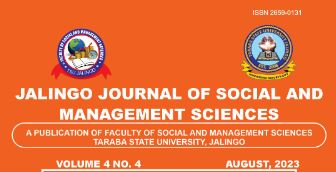An Evaluation of Dispute Resolution under Rwanda’s Gacaca Court and AFCFTA: Lesson for Nigeria
Keywords:
Gacaca Court, AfCFTA, Rwanda, Nigeria, Dispute ResolutionAbstract
The aim of this paper is to review the method of conflict resolution adopted in the Gacaca, and evaluate the method(s) used, including success/failure and other relevant issues. The paper adopted functionalist theory in order to explain Gacaca and African Continental Free Trade Area Agreement (AfCFTA). Methodologically, the paper adopted desk review by using secondary data from body of literature relevant to the problem under study. From the critical assessment of the situation and exploratory factors that influenced the process of dispute resolution, the paper finds that Rwanda adopted a model centered on criminal prosecution, while other countries responded to conflict similar to Rwandan using alternatives to widespread prosecutions and Nigeria can reflect on it to introduce an alternative dispute resolution mechanism to address various crises bedeviling the country. The paper concluded that from farmers-herdsmen conflict, through religious extremism to Biafra secession agitation, these mechanisms are important to Nigerian government to employ traditional and alternative dispute resolution strategies to maintain peaceful coexistence between various ethnic groups and achieve sustainable peace in the country and subregion. However, the paper postulates that neither Gacaca nor AfCFTA is perfect, therefore it recommended that Nigeria should not take Gacaca as the model to follow religiously, but should introduce an indigenous legal mechanism as an Alternative Dispute Resolution(ADR) to suit the country’s unique culture, geography and history.

Downloads
Published
Issue
Section
License
Copyright (c) 2023 JALINGO JOURNAL OF SOCIAL AND MANAGEMENT SCIENCES

This work is licensed under a Creative Commons Attribution-NonCommercial 4.0 International License.
